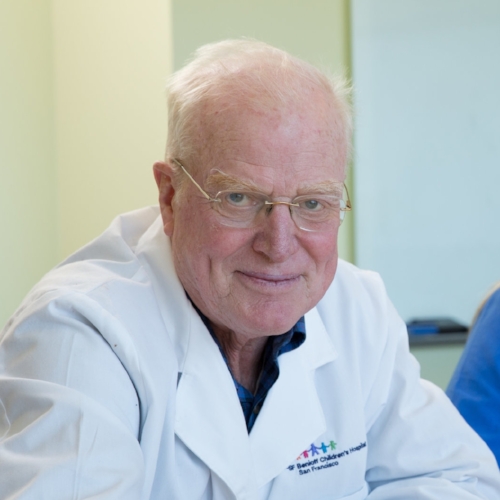#22
Pioneering Fetal Surgery
With Michael R. Harrison, MD
Principal Investigator & Clinical Lead, UCSF-Stanford Pediatric Device Consortium
Professor Emeritus of Surgery, Pediatrics, Obstetrics, Gynecology & Reproductive Sciences, UCSF
Director Emeritus, UCSF Fetal Treatment Center
Since retiring from active clinical practice in 2006, Dr. Harrison has dedicated his time and research efforts to the PDC, including mentoring junior innovators and trainees and advancing his own device development projects. As the Program Director and Clinical Lead, he oversees PDC activities, strategic aims, and clinical collaborations.
Dr. Harrison has extensive experience in clinical problem-solving and device development, initially in pioneering the field of fetal surgery at UCSF. For more than 25 years, he has studied how life-threatening fetal abnormalities alter normal physical processes. Fetal intervention required the invention of many new techniques and devices, including the development of absorbable staples to open and close the gravid uterus and the development of the Harrison fetal bladder stent for obstructive uropathy. This stent was the first device to receive FDA designation as a Humanitarian Use Device and is widely used around the world.
Earlier in his career, Dr. Harrison developed other novel devices and surgical tools, including a cell microculture harvesting device for automating mixed lymphocycte cultures while a research associate at the NIH. More recently, he has developed devices that rely on magnetic force to solve pediatric problems, two of which are currently in first-in-human trials.
In addition to his role with the PDC, Dr. Harrison is Professor Emeritus of Surgery, Pediatrics, Obstetrics, Gynecology, and Reproductive Sciences and Director Emeritus of the Fetal Treatment Center at UCSF.
